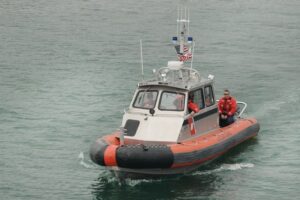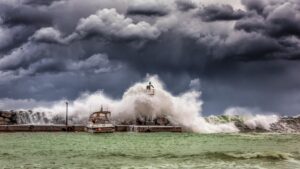 When the months get a bit toasty, people start looking for all sorts of ways to cool off. Some go take a dip in swimming pools or the beach. Others go visit places where it is colder. And some just turn on their air conditioning for longer than they usually do. Lastly, others take it a bit further: by going boating. But like any other activity, boating is still prone to accidents happening. Most of these accidents are preventable as well.
When the months get a bit toasty, people start looking for all sorts of ways to cool off. Some go take a dip in swimming pools or the beach. Others go visit places where it is colder. And some just turn on their air conditioning for longer than they usually do. Lastly, others take it a bit further: by going boating. But like any other activity, boating is still prone to accidents happening. Most of these accidents are preventable as well.
Prevention is your best defense against this. So under which conditions do most boating accidents occur? Here is a closer look.
Understanding The Most Common Boating Accidents
Before you learn about the conditions that cause most boating accidents, you must first take a look at the most common ones. You will understand the basic concepts that lead to these accidents, and how they tie in with specific situations.
- Someone goes overboard: This is likely the most obvious boating accident of all. Due to certain circumstances, somebody on the boat might accidentally go overboard. Most of the time, it’s due to slippery decks and a lack of traction items such as mats on it. And one thing that makes this even more dangerous is if the person who went overboard can’t swim.
- Capsizing: This is when the boat will turn over on its side due to a wide variety of factors. When this happens, it has the tendency to cause serious injuries, if not fatalities.
- Fire/explosions: Unless the boat is strictly powered by oar or sail, this has a high possibility of happening. It’s because most modern vessels feature either a gas or diesel engine. And it’s not all about the engine either: any spillage of flammable material can always cause a fire or an explosion.
- Collisions: Collisions in the water are as prevalent as cars bumping into each other on the road.
- Grounding/sinking: Perhaps the greatest danger of boating, a boat always has a chance of running aground or sinking due to both environmental and human factors.
Now that you know about these common boating accidents, let’s see the situations when they most often occur.
Related: Do’s And Don’ts: A Quick Guide To Boat Safety
What Causes Common Boating Accidents?
Likely the most common condition under which a boating accident can occur stems from human error. Much of these can be attributed to drunk driving. And believe it or not, drunk driving is as ever-present a danger on the water as it is on the road! Anybody who pilots a boat drunk is always due to make a mistake. They can inappropriately try steering into bad weather, for instance. Or they might cause dangerous chemicals to spill on board, such as fuel or anything slippery.
Time of day can also play a part in boating accidents too. For instance, around 35 percent of fatal accidents occur at around midnight to 2:30 AM. It’s because at this time frame, there’s not a lot of other boats in the water who can help in an emergency situation. It also doesn’t help that it’s very dark around this time, meaning that operators will have trouble seeing and avoiding potential collisions or any other dangerous situation.
 But perhaps the most dangerous condition of all involves bad weather. Even the most modern vessels are always at the mercy of Mother Nature. High winds and powerful waves can always cause any boat to capsize, sink, or worse. Always. This is the main reason why weather reports are critical when going out into the water, especially at sea! You miss a crucial weather forecast, and you could be in some trouble.
But perhaps the most dangerous condition of all involves bad weather. Even the most modern vessels are always at the mercy of Mother Nature. High winds and powerful waves can always cause any boat to capsize, sink, or worse. Always. This is the main reason why weather reports are critical when going out into the water, especially at sea! You miss a crucial weather forecast, and you could be in some trouble.
And lastly, there’s also the possibility of inadequate passenger behavior. You can say that this is likely to happen on recreational vessels. Passengers can celebrate a bit too much and be careless while on board, causing all sorts of problems. Or their nautical inexperience can cause them to do the same wrong things while out on the water. By the time they do something wrong, there’s not much that an experienced operator/skipper could do about it, except maneuver the boat out of harm’s way.
Related: Survival Kit Essentials To Keep In Your Boat
Final Thoughts
Boating is a fun activity. Nobody can deny that. But one should always be on the lookout for things that can turn things nasty in the blink of an eye. And there’s nothing bad about adequate preparation before launching! Make sure the vessel is properly outfitted with essentials, and the cruise will be smooth sailing.
